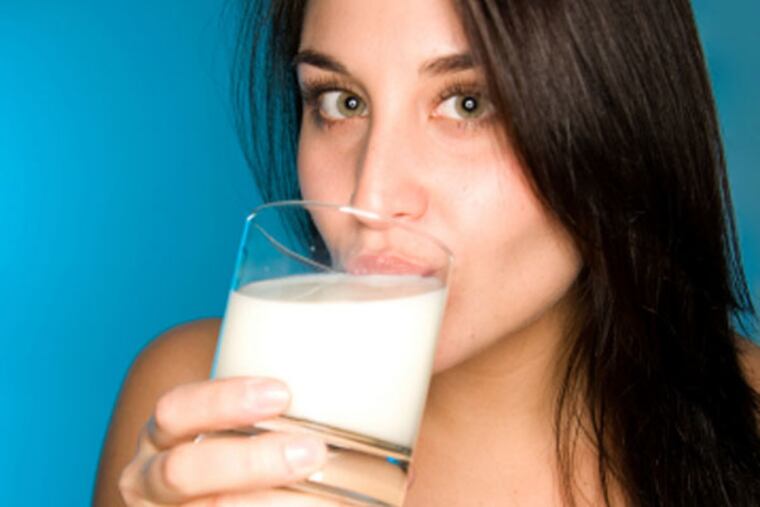Is milk the healthiest, safest source of calcium?

How many times did mom tell you that you had to finish your milk if you wanted strong bones? Now in honor of Mother's Day this past weekend, we'll stick to the notion that moms are always right but it seems they may have been fed some misinformation…
According to new research conducted by the Harvard School of Public Health, milk may not be the best source of calcium for bone health. We do know that adequate calcium—both for bone development and for non-bone functions—is key to reducing the risk of osteoporosis. That means 1,000 milligrams a day for those age 19 to 50 and 1,200 mg/day for those over age 50.
However, despite all the "Got milk?" campaigns we've seen over the years, the healthiest or safest amount of dietary calcium hasn't yet been established. And while milk is generally the first thing you reach for to fulfill your calcium intake, it may not be the safest. Harvard research suggest that a high intake in dairy products can increase the risk of prostate and ovarian cancer — plus, dairy products can be high in saturated fat as well as vitamin A, which at high levels can actually have the opposite effect on bones and weaken them.
The research states:
Currently, there's no good evidence that consuming more than one serving of milk per day in addition to a reasonable diet (which typically provides about 300 milligrams of calcium per day from nondairy sources) will reduce fracture risk. Because of unresolved concerns about the risk of ovarian and prostate cancer, it may be prudent to avoid higher intakes of dairy products. At moderate levels, though, consumption of calcium and dairy products has benefits beyond bone health, including possibly lowering the risk of high blood pressure and colon cancer.
The research greatly contrasts the USDA's MyPlate dietary guidelines, which recommends a serving of milk/dairy at every meal. Instead, Harvard's updated "Healthy Eating Plate" suggests drinking water with every meal and limiting milk/dairy to only one or two servings per day.
So instead grabbing a second glass of milk, look to non-dairy sources of calcium like dark green, leafy vegetables, such as kale and collard greens, bok choy, fortified soy milk, or baked and dried beans to switch up your diet. Also, supplements that contain both calcium and vitamin D are a better choice than just taking calcium alone.
For the full study, check out Harvard.edu.